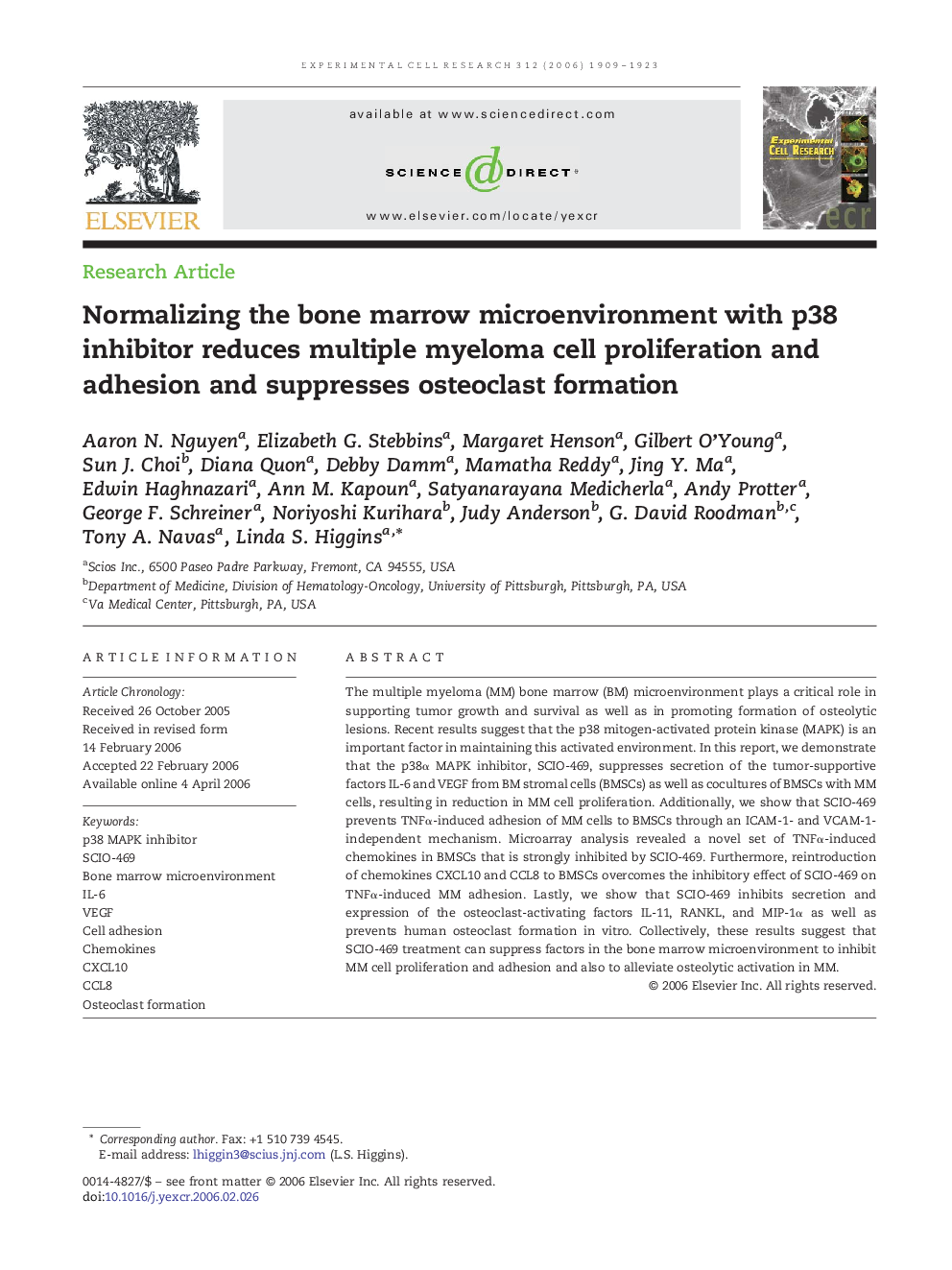| Article ID | Journal | Published Year | Pages | File Type |
|---|---|---|---|---|
| 2132152 | Experimental Cell Research | 2006 | 15 Pages |
The multiple myeloma (MM) bone marrow (BM) microenvironment plays a critical role in supporting tumor growth and survival as well as in promoting formation of osteolytic lesions. Recent results suggest that the p38 mitogen-activated protein kinase (MAPK) is an important factor in maintaining this activated environment. In this report, we demonstrate that the p38α MAPK inhibitor, SCIO-469, suppresses secretion of the tumor-supportive factors IL-6 and VEGF from BM stromal cells (BMSCs) as well as cocultures of BMSCs with MM cells, resulting in reduction in MM cell proliferation. Additionally, we show that SCIO-469 prevents TNFα-induced adhesion of MM cells to BMSCs through an ICAM-1- and VCAM-1-independent mechanism. Microarray analysis revealed a novel set of TNFα-induced chemokines in BMSCs that is strongly inhibited by SCIO-469. Furthermore, reintroduction of chemokines CXCL10 and CCL8 to BMSCs overcomes the inhibitory effect of SCIO-469 on TNFα-induced MM adhesion. Lastly, we show that SCIO-469 inhibits secretion and expression of the osteoclast-activating factors IL-11, RANKL, and MIP-1α as well as prevents human osteoclast formation in vitro. Collectively, these results suggest that SCIO-469 treatment can suppress factors in the bone marrow microenvironment to inhibit MM cell proliferation and adhesion and also to alleviate osteolytic activation in MM.
